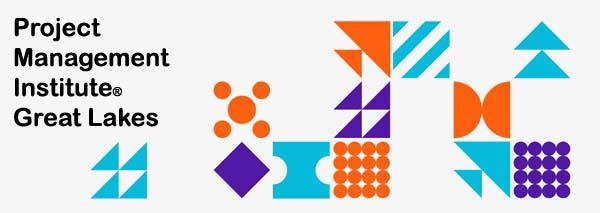PM Musings

The Future of Change Management: 5 Trends and Innovations
by April Callis Birchmeier CSP, PMP, CCMP™
Organizational Change Management is an evolving field, and now more than ever, the pace of transformation is pushing us to think about the future in innovative ways. As leaders and professionals responsible for guiding organizations through change, we need to be prepared for what’s next. Let’s explore five key trends and innovations shaping the future of Change Management.
- AI and Automation: The Smart Future of Change
Artificial Intelligence (AI) is no longer a futuristic concept – it’s here, and it’s transforming how we manage change. With AI-driven tools at our disposal, we can now analyze data at unprecedented speeds, predict employee sentiment, and identify resistance before it becomes a roadblock. These innovations allow us to spend less time reacting to problems and more time proactively shaping successful change journeys.
For example, AI platforms such as Chat GPT, Microsoft Copilot, and Perplexity offer the ability to accelerate first drafts of communications, easily create training schedules, and even conduct gap analysis exercises for business process modifications. This allows change leaders to focus their efforts where they will make the most difference, driving faster and more effective transformations
-
Hybrid and Remote Work: Shaping Ways of Working
The rise of hybrid and remote work models is reshaping not just how we work, but how we approach change management. Leading change in a distributed workforce demands new strategies to keep employees engaged, informed, and connected. Clear communication is more critical than ever, and our approach must be inclusive, ensuring no one is left behind in a virtual world.
Using collaboration platforms such as Microsoft Teams and Slack to integrate with change management tools, allows for seamless communication and collaboration across geographically dispersed teams. These platforms offer real-time feedback loops, ensuring everyone remains in step with ongoing change.
-
Human-Centered Change and Employee Experience
Successful change begins and ends with people. The future of change management is more human-centered and focused on the employee experience. Personalization, empathy, and support will be the keys to building trust and reducing resistance, especially as employees navigate both personal and professional changes.
Digital employee experience platforms such as Qualtrics and Survey Monkey are enabling us to listen to people at every stage of the change journey. Capturing feedback in real-time, provides the ability to adapt our strategies to meet the unique needs of individuals, driving both well-being and performance
-
Agile Change Management: Responding to Change with Agility
The days of rigid, one-size-fits-all change processes are behind us. In today’s fast-moving world, we need change management approaches that are as flexible and iterative as the business challenges we face. Agile change management allows us to break down large initiatives into manageable steps, respond quickly to feedback, and adjust our course along the way.
As organizations adopt Agile methodologies and embed change management directly into sprints, dynamic change is tracked on both project and change plans to measure development and change adoption, ensuring that change is iterative, responsive, and driven by real-time data.
-
Data-Driven Strategies: The Power of Insights
In the future, the best change strategies will be driven by data. With powerful analytics tools at our fingertips, we can gain deep insights into how change is being received, where resistance lies, and what steps will help ensure success. Data-driven change allows us to be more strategic in our approach, focusing on the areas that matter most and adjusting in real-time to optimize results.
Analytics tools are revolutionizing the way we approach change. By analyzing workforce data, we can determine when and how to implement change initiatives for maximum effectiveness – with minimal disruption
The future of change management is both exciting and challenging. As we embrace these trends, it’s clear that a combination of cutting-edge technology and a renewed focus on the human experience will define how we lead change successfully in the years to come. By adopting these innovations, we can ensure our organizations are not only prepared for change but thrive in it.
April Callis Birchmeier CSP, PMP, CCMP™ is a PMP, Global Guru in Organizational Culture, and Recipient of the International Change Awards – Lifetime award, who implements change for government, healthcare, and corporate clients. She’s also the bestselling author of READY, Set, Change! Simplify and Accelerate Organizational Change. As a Qualified Education Provider, and PMI Training Instructor, she prepares and trains project professionals to pass the CCMP™ Certified Change Management Professional certification.
You can reach her at April@Springboard-Consult.com
|
|

